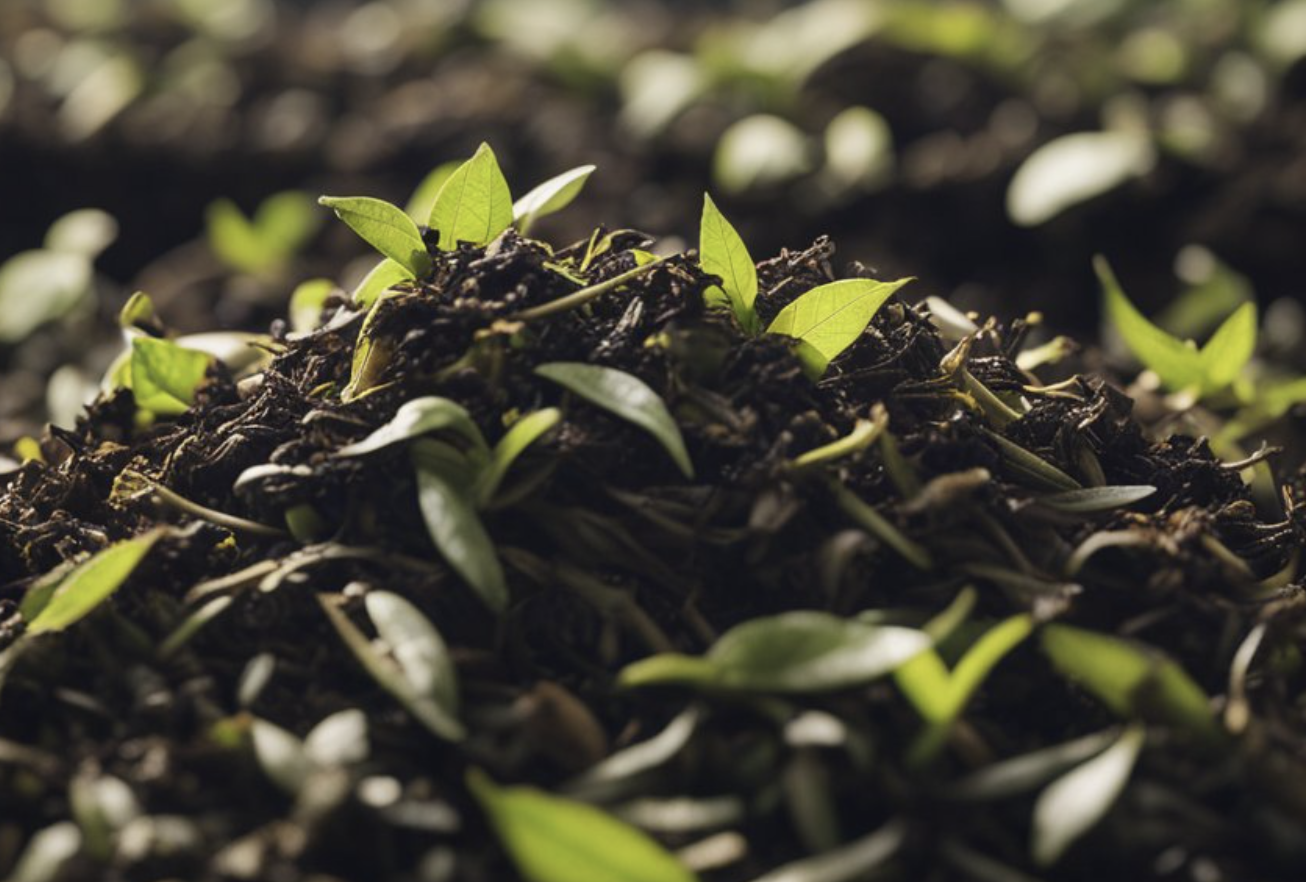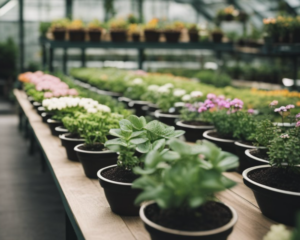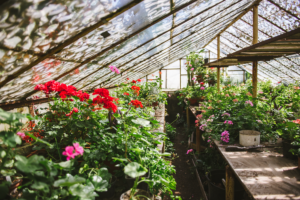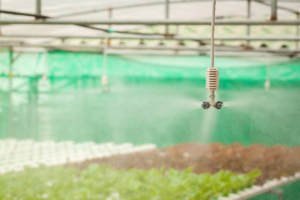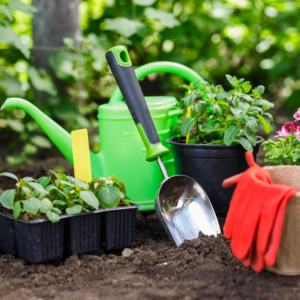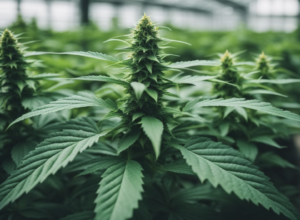I recently discovered something pretty cool about tea bags and loose leaves. You can actually use tea as compost, and it has some great benefits for your garden. I tried it myself, and my plants seemed to love it!
Old tea bags or loose leaves break down nicely in the soil. They add nutrients like nitrogen, which helps plants grow strong and healthy. Plus, it’s a great way to reduce waste and make your garden a bit greener.
Using tea as compost is simple. After making your tea, just throw the used leaves or bags into your compost pile or directly into the garden soil. If you’re looking for an easy and eco-friendly way to boost your garden, why not give tea composting a try?
Understanding Compost Tea
Compost tea is a liquid solution made by steeping compost in water, which helps extract nutrients and beneficial microbes. It can improve soil health and plant growth significantly.
What Is Compost Tea?
Compost tea is created by soaking compost in water. This process helps extract essential nutrients and microorganisms from the solid compost into a liquid form. The resulting mixture can then be sprayed or poured onto the soil and plants. It is like a nutrient-rich tea designed to enhance soil and plant health. Unlike chemical fertilizers, compost tea is all-natural and focuses on boosting microbial life in the soil.
Benefits of Compost Tea
Compost tea offers numerous benefits for both soil and plants. It provides essential nutrients that promote healthier plant growth. The beneficial microbes in the tea can help break down organic matter in the soil, releasing even more nutrients for plants. Additionally, these microbes can protect plants from diseases by outcompeting harmful pathogens. Using compost tea can lead to stronger, more resilient plants and improved soil health over time.
The Role of Microbes in Compost Tea
Microbes play a crucial role in the effectiveness of compost tea. These tiny organisms, including bacteria and fungi, are essential for breaking down organic matter and turning it into nutrients that plants can absorb. Beneficial microbes in compost tea can help balance the microbial life in the soil, creating a healthier environment for plant roots. They also form symbiotic relationships with plants, helping them access nutrients more efficiently.
Comparing Aerobic and Anaerobic Brewing
There are two main methods for brewing compost tea: aerobic and anaerobic. Aerobic brewing involves actively adding oxygen to the water by using an air pump. This method encourages the growth of beneficial microorganisms, which thrive in oxygen-rich environments. Anaerobic brewing, on the other hand, does not add extra oxygen and can lead to the growth of different types of bacteria, some of which might not be as helpful for plants.
Aerobic pros:
- Promotes beneficial microbes.
- Reduces harmful pathogens.
Anaerobic cons:
- May produce foul smells.
- Can encourage harmful bacteria.
Components of Compost Tea
To make excellent compost tea, you need good compost and specific nutrients. These elements work together to create a nutrient-rich solution.
Quality Compost: The Foundation
The key to great compost tea is starting with fully finished organic compost. I always use compost that’s broken down nicely and full of life. This means it’s dark, crumbly, and smells earthy.
I like to add worm castings to my compost. They enrich the tea with beneficial microbes. Manure from herbivores like cows or horses can also be valuable, adding lots of nutrients.
For compost tea, using non-chlorinated water is important. Chlorine in water can kill the helpful bacteria and fungi. Rainwater or dechlorinated tap water both work well.
Adding Nutrients and Ingredients
Brewing compost tea gets better with extra nutrients. I often mix in blackstrap molasses for sugar. This feeds the microbes, helping them multiply.
Kelp and fish hydrolysate add essential minerals and proteins. Sometimes I use fish emulsion instead since it’s easier to find. Be careful with the amounts; too much can harm plants.
I prefer to use a bucket with an aeration system. Oxygen helps the microbes thrive. You could use a simple aquarium pump.
Adding plants like comfrey or nettle boosts the tea’s organic content. These plants break down quickly and mix well with the compost.
Brewing and Using Compost Tea
Compost tea is a great way to boost plant health using natural ingredients. Here’s a guide on how to brew and use it properly.
Step-by-Step Compost Tea Brewing Guide
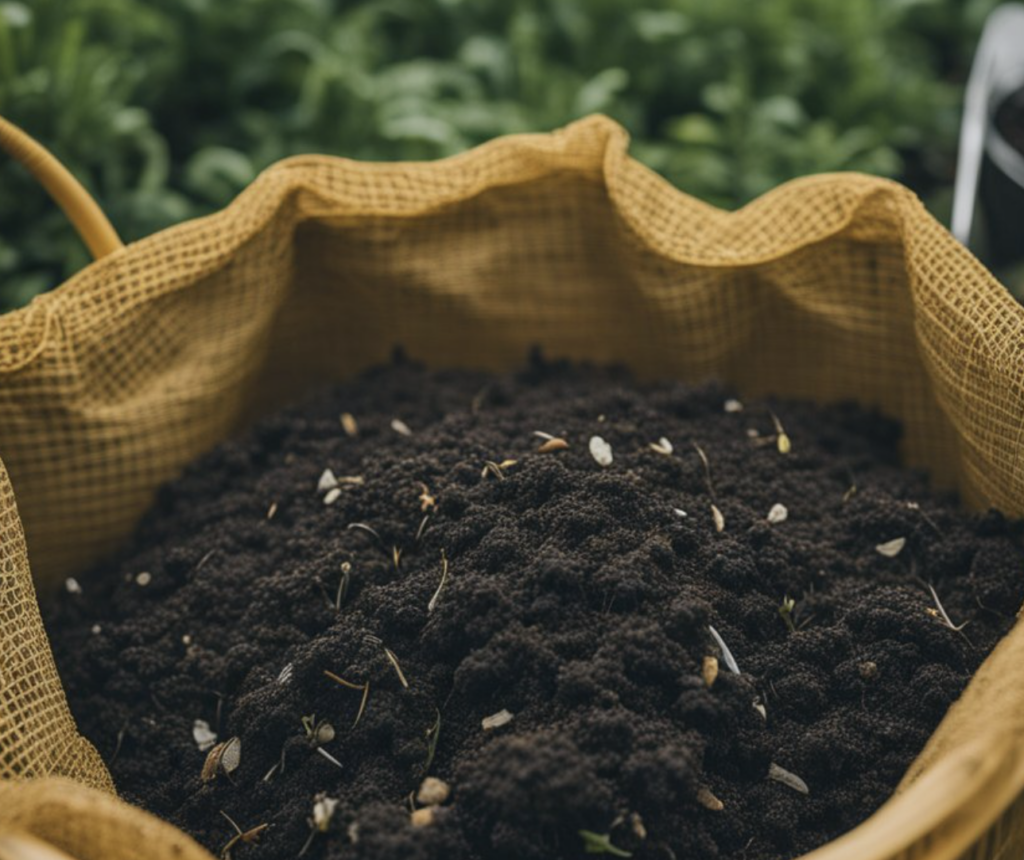
First, gather all the materials you need: quality compost, a mesh bag or strainer, non-chlorinated water, and a bucket. Put the compost into the mesh bag and submerge it in the water. You can use about 1 cup of compost for every gallon of water.
Let it steep for about 24-48 hours. Stir occasionally to keep everything mixed. This gives the beneficial microorganisms time to multiply and enrich the tea.
After brewing, strain the liquid to remove any solid bits. Now you have your compost tea ready to use in the garden.
Methods to Aerate and Stir the Brew
Aeration is essential for brewing compost tea because it supports the growth of beneficial bacteria and fungi. You can use an aquarium pump with a bubbler to keep the water oxygenated. Just place the bubbler at the bottom of the bucket during the brewing process.
Stirring is vital too. Stir the mixture a few times a day to make sure the compost evenly disperses in the water.
These steps ensure you have an aerated compost tea that’s beneficial to your plants.
Diluting and Applying Compost Tea
Before applying, dilute the compost tea with water. The usual ratio is 1 part tea to 10 parts water. This ensures that the tea won’t overwhelm your plants.
For foliar spray, pour the diluted tea into a spray bottle and mist it onto plant leaves, focusing on both the upper and lower surfaces. It’s best to spray early in the morning or late in the afternoon to avoid burning the foliage.
You can also pour the diluted tea directly onto the soil around the plants.
Precautions and Misconceptions
Be cautious with compost tea as it can contain harmful bacteria if brewed improperly. Always use finished compost and non-chlorinated water to minimize risks. If it smells bad, don’t use it.
A common misconception is that compost tea can replace all other fertilizers. While it’s beneficial, it works best as part of a broader gardening strategy.
Using dirty equipment can also introduce harmful bacteria, so make sure everything is clean before you start brewing compost tea. This keeps your tea safe and effective.
Optimizing Soil and Plant Health
Tea as compost plays a vital role in enhancing soil structure and boosting plant resilience. It also helps maximize yields for vegetables and crops.
Compost Tea’s Impact on Soil Structure and Nutrient Absorption
Compost tea boosts soil structure and nutrient absorption by adding beneficial microorganisms. These tiny organisms help in breaking down organic matter like manure and plant debris in the compost pile.
Rich in nitrogen, potassium, and phosphorus, compost tea helps soil retain these essential nutrients. It also promotes the growth of mycorrhizal fungi, which partner with plant roots. This partnership improves the plant’s ability to absorb nutrients and water.
Soil treated with compost tea has better aeration and water-holding capacity. This makes the soil more fertile and helps plants grow healthier.
Boosting Plant Resilience and Root Growth
Using compost tea can make plants more resilient to pests and diseases. The microorganisms in the tea create a protective layer around the roots, making it harder for harmful pests and fungi to harm the plants.
The presence of essential nutrients like nitrogen and potassium supports stronger root growth. Strong roots are vital because they anchor the plant and help it access water and nutrients more efficiently.
Healthier roots lead to better plant growth. This means bigger and more nutritious vegetables and crops.
Maximizing Yield for Vegetables and Crops
Apply compost tea regularly to your vegetable garden or crop fields to see a noticeable improvement in yield. The nutrients and microorganisms in the tea stimulate plant growth and enhance the fruiting process.
I’ve noticed that compost tea particularly benefits leafy greens like spinach and lettuce. They grow bigger and taste better. Tomato plants also thrive, producing more and juicier fruits.
Compost tea acts as a natural fertilizer, improving nutrient content in the soil and promoting healthy crops. It’s especially useful for organic farming, offering a sustainable and effective way to increase food production without synthetic fertilizers.
Troubleshooting and Tips

When making tea as compost, some common challenges include ensuring safety, maintaining effectiveness, and balancing microbial life. Below are some tips to help you tackle these issues in your compost brewing journey.
Common Brewing Challenges
Sometimes, the brewing process doesn’t go as smoothly as planned. If your tea bag or burlap sack is not allowing water to flow through, it may be too tightly packed. A looser pack or using a different material can help.
Chlorine in tap water can also impede brewing. This is harmful to beneficial bacteria. Using rainwater, well water, or letting tap water sit for 24 hours can solve this problem.
Also, keep an eye on brewing time. Over-brewing can invite harmful pathogens like Salmonella. Stick to 24-48 hours for aerated compost tea.
Ensuring Safety and Effectiveness
Safety is crucial when making compost tea. Avoid using compost or manure that may contain pathogens. Salmonella contamination can be dangerous, especially if you’re using the tea on food crops.
Using a compost tea brewer can help keep everything aerated and safe. This helps beneficial bacteria thrive while keeping harmful ones at bay.
Remember to clean your brewing equipment, like the watering can or brewing buckets, thoroughly before use. This minimizes contamination. Always use well-aged compost or thoroughly washed materials to ensure safety and effectiveness.
Maintaining the Right Microbial Balance
To ensure a healthy microbial balance, choose the right compost. A good mix of green (nitrogen-rich) and brown (carbon-rich) materials is essential.
Whenever possible, use well-aged compost with diverse organic matter. Adding a small amount of mineral content can also support microbial diversity. This helps keep harmful bacteria out and beneficial ones in.
Using aeration methods while brewing, like a pump in the water, keeps oxygen levels high. This helps beneficial bacteria grow and keeps the tea fresh.
Avoid overloading your brew with too many nutrients as it can cause an imbalance. Follow a simple ratio, such as five parts water to one part compost, for a balanced brew.
Conclusion
Using tea as compost is a great idea. It’s simple and cost-effective. Tea leaves add nutrients to the soil.
I noticed my plants look healthier when I use tea compost. The soil feels richer and retains more moisture.
Even used tea bags can be composted. Just make sure they are free of synthetic materials.
Here are some benefits of using tea as compost:
- Improves soil texture
- Boosts plants’ nutrient intake
- Reduces waste
Tea composting is easy. All you need are tea leaves and your garden. It’s a great way to recycle and help your plants grow. Try it, and you might be surprised by the results.

